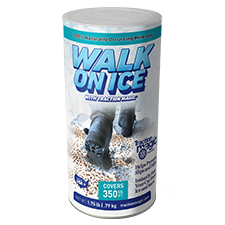How Does Chloride-Based Ice Melt Damage Concrete? And What To Use Instead?
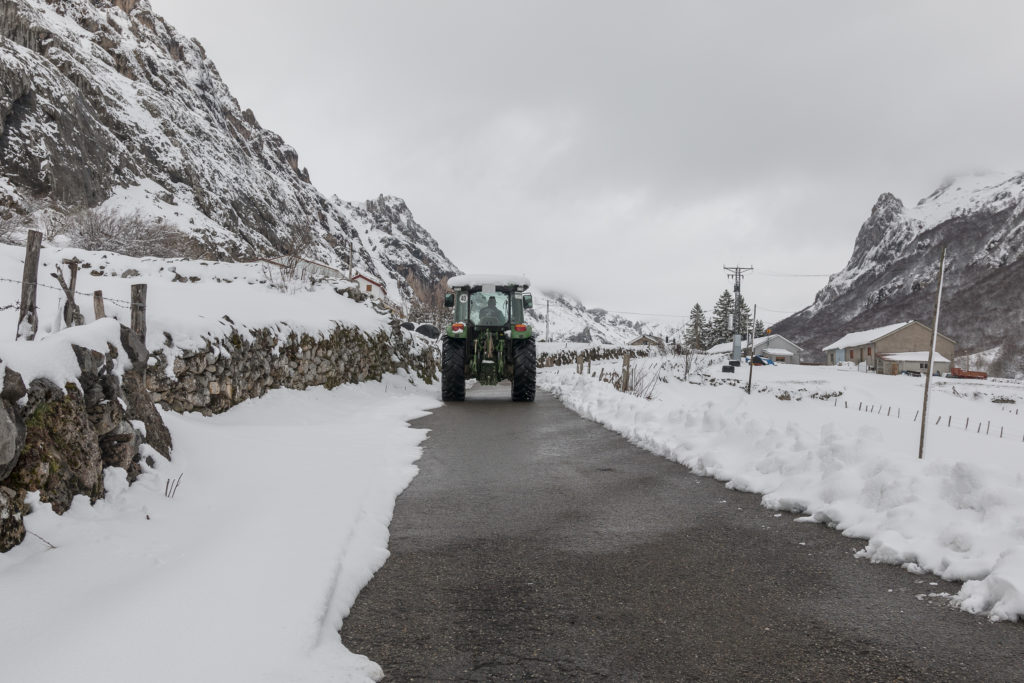
Concrete is a popular choice for driveways, patios, and sidewalks. It’s durable and easy to maintain. Therefore, it’s great for building structures exposed to the elements. However, concrete can also be damaged by improper use of certain chemicals or materials. In this article, we’ll discuss how ice melt salts like chlorides damage concrete and what you can use instead.
How Does Chloride-Based Ice Melt Damage Concrete and What to Use Instead
Chloride-based ice melts, while commonly used for melting ice in winter, come with significant drawbacks for concrete surfaces. Homeowners often face cracked, scaled, and damaged driveways as a result of prolonged use of these deicers. Additionally, their environmental and health impacts raise concerns, making it essential to find better alternatives.
In this guide, we’ll explore why chloride-based products are harmful, what eco-friendly options you can use, and how to apply safe ice melt for concrete effectively.
Environmental Impact of Chloride-Based Deicers
Chloride-based deicing agents, such as sodium chloride (rock salt), calcium chloride, and magnesium chloride, are widely used because of their affordability and effectiveness. However, their environmental toll is considerable.
Soil Contamination
When chloride-based salts dissolve, they seep into the soil, increasing salinity levels. High salinity disrupts soil structure, making it less fertile and inhibiting plant growth. This is especially concerning for landscaping near driveways and sidewalks.
Water Pollution
Runoff from chloride-based ice melts often enters local water bodies, where it can harm aquatic ecosystems. Elevated chloride levels reduce oxygen in the water, impacting fish, plants, and other organisms.
Long-Term Ecological Effects
Continuous use of chloride-based products creates a cumulative effect, leading to persistent soil damage and contaminated groundwater. Switching to what to use instead of salt on concrete, such as chloride-free alternatives, reduces these risks significantly.
Health and Safety Considerations
Beyond environmental harm, chloride-based ice melts can pose risks to pets, children, and wildlife.
Impact on Pets
Chloride deicers can irritate pets’ paws, causing dryness, cracking, and discomfort. If ingested—by licking paws or drinking contaminated water—they can lead to gastrointestinal issues, vomiting, and even toxicity. This highlights the importance of using safe ice melt for concrete and pets.
Risks to Children
Children playing in areas treated with chloride-based ice melts may come into contact with harmful residues. Skin irritation or accidental ingestion can pose health risks. Safer, non-toxic products provide peace of mind for families.
Effect on Wildlife
Wildlife that comes into contact with chloride-laden runoff may suffer from dehydration, toxicity, and disrupted habitats. Opting for what to use instead of salt on concrete helps protect local fauna and ecosystems.
While sodium chloride ice melt is inexpensive, it leads to damage and may cause environmental concerns.
The corrosive nature of sodium chloride makes it a poor choice for use on concrete surfaces. The ice melt salt containing chloride will leach into the concrete surface and deteriorate the material over time. This can lead to pitting and spalling of the surface, leading to structural issues over time.
In addition to causing direct damage to your driveway or sidewalk, sodium chloride can also be harmful if you use it around plants or vegetation in your yard or garden. The salt can kill grasses and other plants near where it’s applied because it kills roots and leaves.

Calcium chloride ice melting products are corrosive
While calcium chloride is an effective ice melting option, it has one drawback: it’s corrosive. That’s why we recommend using a non-corrosive alternative.
Potassium chloride is less corrosive than sodium or calcium chloride but can be harmful to lawns and plants if used in excess.
Potassium chloride is less corrosive than sodium or calcium chloride but can be harmful to lawns and plants if used in excess. The granular form of potassium chloride ice melt is often preferred because it can be spread more evenly across the surface of a driveway. Liquid forms of potassium chloride are available, but they tend to be more expensive than other types of ice melts.
Many ice melt products like road runner ice melt are a cocktail of all the above ingredients mentioned. Therefore, they are effective but damage your property in the long run.
Therefore, we recommend using a chloride-free ice melt like Safe Thaw. It is an exceptional urea-modified product and comprises 100% natural ingredients safe for concrete, kids, and pets, and does not harm our bodies.
Its unique glycols, inhibitors, ice melting boosters, and special surfactants help in melting ice quickly without causing damage to any vegetation and concrete surface.
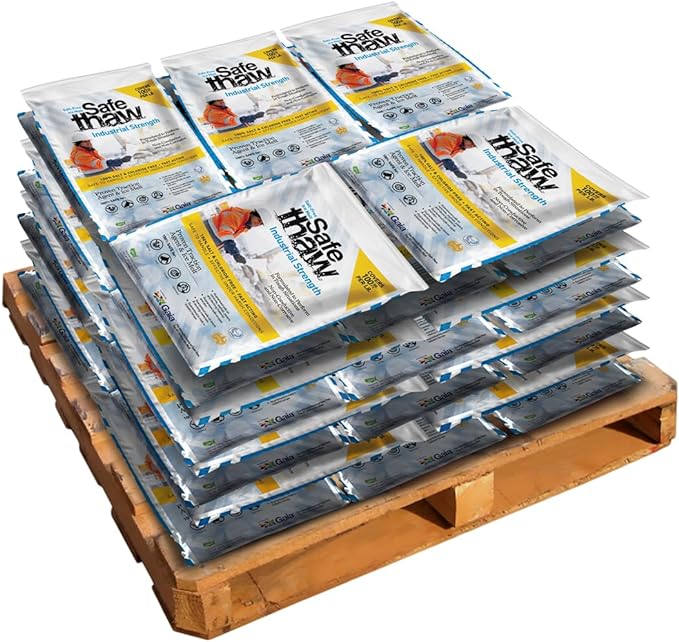
40 Bags
Safe Paw Thaw Industrial Strength Salt-Free Pet Safe Snow Ice Melter and Traction Agent for Concrete, Asphalt, Decks, Lawns, and More, 43 Pound Bag- 40 Bags
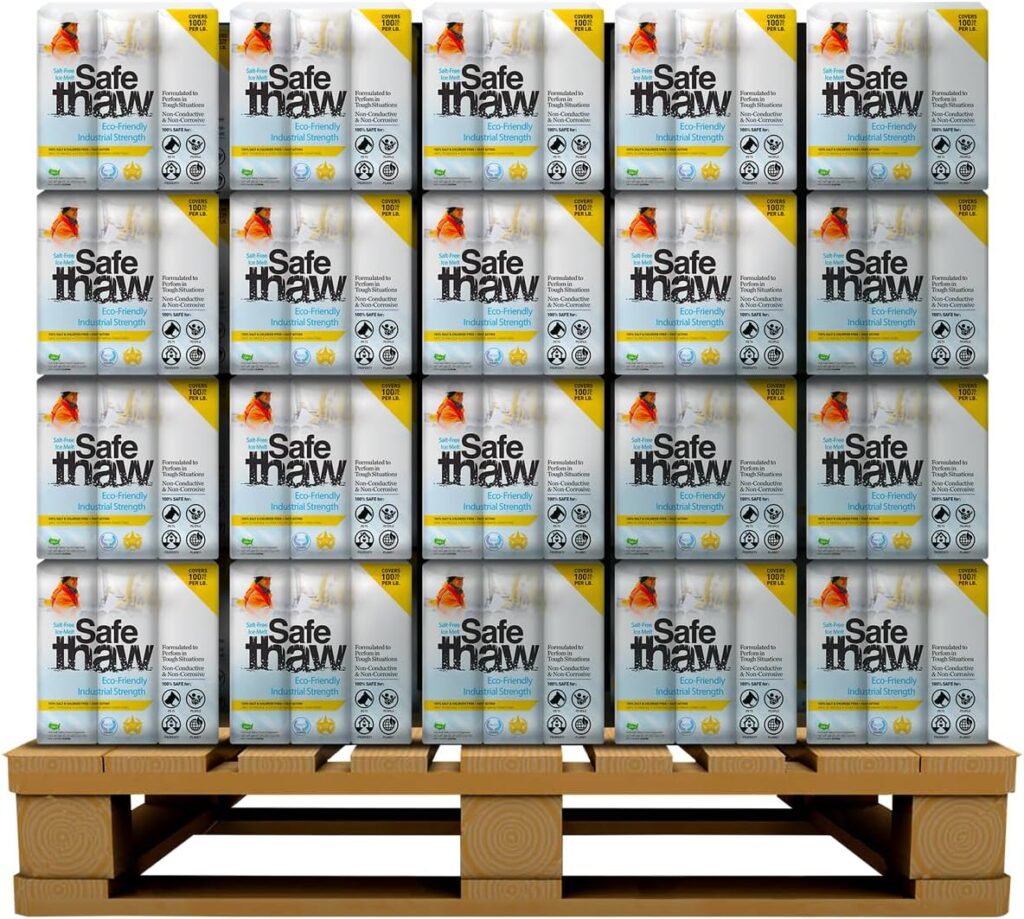
100 Boxes
Safe Thaw Industrial Strength 100% Salt/Chloride-Free, Pet/Paw-Safe Snow & Ice Melter and Traction Agent. Use on Concrete, Asphalt, Roofs & On Any Surface, 30 Pound FlexiPail- 100 Boxes
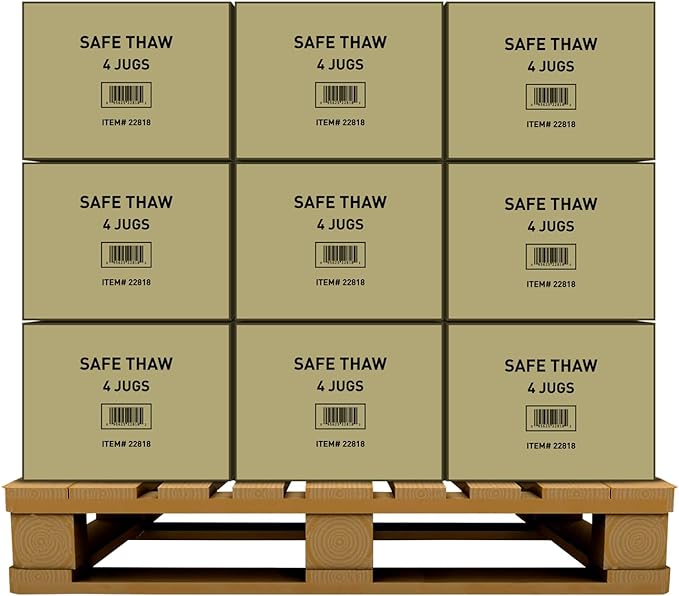
105 Jugs
Safe Thaw Concrete Safe 100% Salt-Free, Pet Safe Snow and ice Melter, Industrial Strength, Chloride-Free, and Traction Agent. Use on Asphalt, Roofs & On Any Surface, 10 Pound Jug- 105 Jugs
Cost-Benefit Analysis of Alternative Ice Melts
Switching to alternative ice melts might involve a higher upfront cost, but the long-term benefits far outweigh the drawbacks of traditional salts.
Concrete Longevity
Chloride salts accelerate freeze-thaw cycles, causing scaling, spalling, and cracking in concrete surfaces. Repairing or resurfacing damaged concrete can be costly. In contrast, safe ice melt for concrete, like Safe Thaw, minimizes these risks, extending the lifespan of your driveways and walkways.
Environmental and Maintenance Savings
While chloride-based deicers damage soil and require additional landscaping repairs, alternatives like Safe Thaw are eco-friendly and reduce the need for frequent lawn restoration.
Comparative Costs
- Chloride-Based Ice Melts: Cheap upfront but costly in repairs and environmental damage.
- Eco-Friendly Ice Melts: Higher initial cost but longer-term savings due to less damage and maintenance.
Investing in what to use instead of salt on concrete ensures your surfaces remain intact and safe for years to come.
Best Practices for Applying Alternative Ice Melts
To maximize efficiency and minimize potential damage, it’s essential to apply alternative ice melts correctly.
Choose the Right Product
Opt for chloride-free, non-corrosive deicing products such as:
- Safe Thaw: A safe and effective alternative that is non-toxic, pet-friendly, and protects concrete from freeze-thaw cycles.
Apply in Moderation
Excessive application of any ice melt can cause surface residue buildup. Follow the manufacturer’s recommendations to achieve optimal results.
Pre-Treat Before Snowfall
For best results, apply safe ice melt for concrete before a snowfall. This prevents ice from bonding to the surface and makes snow removal easier.
Clean Residues Promptly
Once the snow and ice have melted, sweep away any leftover deicer to prevent accumulation, which could potentially damage the surface over time.
Choosing What to Use Instead of Salt on Concrete
If you’re searching for what to use instead of salt on concrete, several effective, environmentally friendly options are available:
- Safe Thaw: A chloride-free, non-corrosive deicer that’s safe for concrete, pets, and the environment.
- Sand or Traction Agents: While sand doesn’t melt ice, it improves traction without causing chemical damage.
- Kitty Litter: Provides traction in icy conditions but does not actively melt ice.
Each alternative offers a safer way to handle ice without compromising the integrity of your concrete or the health of your pets and landscape.
Conclusion
Chloride-based ice melts may be effective in melting ice, but their harmful effects on concrete, the environment, and health cannot be ignored. Understanding what to use instead of salt on concrete allows you to make safer choices for your home and surroundings.
Eco-friendly products like Safe Thaw not only protect concrete surfaces but also ensure the safety of pets, children, and wildlife. By applying safe ice melt for concrete correctly and practicing preventative measures, you can maintain your driveway’s integrity while contributing to a healthier environment.
Make the switch to alternatives that work efficiently, protect your investments, and keep your family safe.
100% salt & chloride-free, fast acting Ice Management Solution
Try Also Our Other Winter Safety Products:
Safe Paw
The Original and #1 Selling Pet and Child Safe Ice Melt for over 20 years. Guaranteed environmentally safe –It won’t harm animals or children, and it won’t damage your property. That’s Safe Paw. Safe Paw can change how winter affects our planet.

Walk On Ice
The handy disposable canister can be taken everywhere, with the same 100% naturally occurring minerals that provide instant traction on ice or snow. Use it on sidewalks, steps, or as an instant traction agent for your car.
